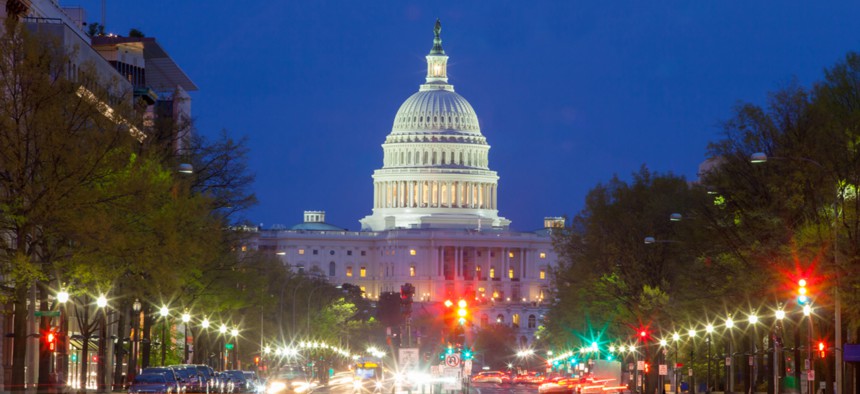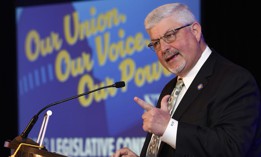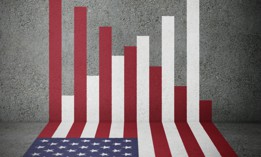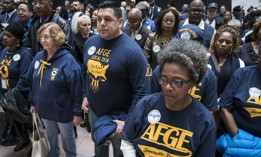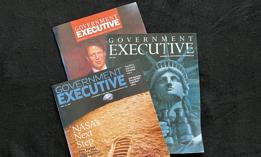One of the most important questions—unanswered by the legal scholars at the December 4 Judiciary Committee hearing, or indeed by anyone else in this whole process—is the exact nature of abuse of power. Admittedly, those scholars, particularly Michael Gerhardt and Noah Feldman, did talk at some length about the concept, but never at a very deep level, in part because House members either badgered them or lobbed them softballs, depending on their political persuasion. Understanding abuse of power is important because while Nixon, Clinton, and a number of federal judges have been charged with it, the records of the Philadelphia Convention neither use that phrase with regard to impeachment nor support the claim that a president is subject to impeachment for anything Congress desires. When members of the convention did discuss abuse of power, they failed to give a clear definition, although there are suggestions that it results from a tension between personal and public interest. Most of those discussions, furthermore, reflected a fear not of the president, but—ironically—of Congress and of individual state power. If we are going to continue to apply the phrase abuse of power to presidential actions, then we must define it so that some standard can exist.
According to the long-held conventional view, in a crucial moment during the convention, George Mason of Virginia stated that treason and bribery by themselves weren’t broad-enough grounds for impeachment. He then proposed adding the offense of “maladministration.” But James Madison pushed back, arguing in essence that this would amount to removal by a vote of no confidence, thus creating a parliamentary system rather than one based on separation of powers. “So vague a term,” he observed, “will be equivalent to a tenure during pleasure of the Senate.” In response, Mason withdrew “maladministration” and substituted the now-celebrated phrase other high crimes and misdemeanors .
The historian and Madison scholar Mary Sarah Bilder has argued that this passage of Madison’s notes was likely not a contemporaneous record of his, and that Americans place too much weight on it when trying to understand what the Founders had in mind as impeachable offenses when they added “other high crimes and misdemeanors.” Nevertheless, the phrase was a term of art in English law, dating at least as far back as 1642 , and it likely didn’t permit Parliament—and thus presumably Congress—to impeach and convict for actions that weren’t already known, at the time of the act in question, to be offenses. Moreover, before the maladministration discussion—if it took place as Madison recollected—the Founders had already considered and ultimately rejected language that would have had “malpractice or neglect of duty” as the standard for impeachment. Whatever precisely transpired at the convention, one thing is clear: “Other high crimes and misdemeanors” is a standard more restrictive than a mere no-confidence vote.
Some have disagreed with this conclusion. The most famous statement to the contrary is that of then-Representative Gerald Ford. “An impeachable offense is whatever a majority of the House of Representatives considers [it] to be at a given moment in history,” he declared . “Conviction results from whatever offense or offenses two-thirds of the other body considers to be sufficiently serious to require removal of the accused from office.” More recently, but well before Ukrainegate, Representative Maxine Waters has channeled Ford on this subject. “Impeachment is about whatever the Congress says it is,” she proclaimed in 2017 . “There is no law that dictates impeachment. What the Constitution says is ‘high crimes and misdemeanors’ and we define that.”
If impeachment isn’t subject to judicial review—and so far the Supreme Court has held that it isn’t—then Ford and Waters may be right as a matter of raw power, but not as a matter of constitutional principle. If the history of impeachment and the Philadelphia debate are to influence the current proceedings, then the president cannot be impeached, or at any rate removed, for maladministration or at least negligent administration. Nevertheless, perhaps he can be removed for abuse of power. What the Judiciary Committee should have been asking, and what the experts should have been dispassionately analyzing, is whether, and how, abuse of power differs from maladministration or negligence.
What’s so troubling is the nebulous nature of abuse of power. Politicians, presumably, tend to make decisions with an eye to what will keep them in office. Not always: One oft-quoted exception is that of Senator Edmund G. Ross, who cast the key vote to acquit President Andrew Johnson and consequently lost his seat in the next race. Much later, he claimed he knew at the time that his vote would end his political career, although this is open to challenge . But in general, politicians try to hold on to their power.
This is arguably, as computer coders like to say, a feature and not a bug, at least in a democratic republic, because politicians also presumably take public actions that they know, or at least hope, will be popular with the voters and thus keep them in office. Accordingly, past presidents have often engaged in activities that might easily be described as abusive of their powers, but the voters, or at least history, have frequently given them a pass. In 1792, George Washington’s administration refused a congressional demand for executive-branch information in the first claim of executive privilege, despite the belief of some that such a refusal would constitute an impeachable offense. A few decades later, Andrew Jackson, and then John Tyler, began vetoing bills at furious rates, not because the presidents believed them to be unconstitutional, but merely on policy grounds. During the Civil War, Abraham Lincoln jailed political dissidents without trial, used the Army to stop the Maryland state legislature from meeting, and freed millions of slaves by executive order. In 1942, Franklin D. Roosevelt also used an executive order to incarcerate more than 100,000 American citizens of Japanese ancestry purely on the basis of their ethnicity. In 1952, Harry Truman seized many of the nation’s steel mills in the face of a wartime steel workers’ strike. In 1972, Nixon endeavored to impound congressionally appropriated funds even after Congress had overridden his veto of the appropriation.
Most, if not all, of these actions were called abusive and drew heavy criticism when they occurred, and some of them became grounds for impeachment demands or investigations. Some of them have stood the test of time, becoming constitutional doctrines or the basis for constitutional amendments. Some of them, initially acceptable, have been condemned by history. None of them resulted in impeachment.
This litany shows that the abuse-of-power standard is dangerously malleable as a basis for impeachment. Noah Feldman, the Harvard professor who testified before the Judiciary Committee, argued in the hearings that abuse of power had a clear meaning to the Founders: It amounted to an exercise of authority for personal gain rather than for the public interest. But is this a meaningful standard? Politicians may sometimes fall on their swords, but in general it’s silly to think that they act without regard for the effect those actions will have on their reelection chances, or at least the election prospects for their party. In that sense, all actions are self-serving to a degree. Senator Ross, in fact, is remembered today precisely because he was so atypical.
What good, then, is the Feldman rule? We could modify it, perhaps, to say that abuse of power occurs when the president acts exclusively for his personal benefit to the clear detriment of the public. In Trump’s case, this modified rule might work: Here, Trump was soliciting foreign interference into the hallowed election process, and Americans have always been a bit twitchy about tinkering with elections. But even in this case, Republicans have muddied the waters by arguing (albeit not very convincingly) that Trump’s request to President Zelensky was part of a larger, legitimate campaign against corruption in Ukraine.
Nevertheless, in most instances what’s in the public interest is contested. Given that inescapable fact, what prior notice will presidents have regarding exactly what is and isn’t impeachable? If we’re not careful, the abuse-of-power standard could become a congressional game of “I’ve got a secret,” with presidents never knowing what might subject them to a vote of no confidence. The obvious retort is, any reasonable person should know that some things are over the line. This is akin to Potter Stewart’s test for obscenity. “I shall not today attempt further to define [hard-core pornography],” he wrote in a Supreme Court opinion , “and perhaps I could never succeed in intelligibly doing so. But I know it when I see it.” Perhaps he did, when it came to his own views. But because one man’s porn is another man’s art, this is a recipe for arbitrary abuse of impeachment power, as we arguably saw in the cases of Samuel Chase and Andrew Johnson. Because this standard would always be in flux as parties and interests change, it is no standard at all. Impeachment would become a device to enforce ex post facto laws, allowing Congress to attack the president after the fact for something not clearly wrong when he acted. This is something the Constitution condemns.
If abuse of power is perilously fluid—that is, too much like the controversial maladministration standard—then what rule should we use instead? Many scholars throughout American history—most recently another Harvard law professor, Alan Dershowitz—have argued that the only way to satisfy the rule of law is to permit impeachment solely for the commission of indictable crimes. This isn’t a popular theory today, and in practice Congress has long rejected it. But it’s still a conversation the country ought to be having. Indictable-crime standard or not, either the president is impeachable for whatever Congress decides on the fly that he’s impeachable for, or else Congress must show that the president was on prior notice of what is impeachable.
“Obstruction of Congress” presents even thornier problems. In the past, the language has usually been “obstruction of justice,” or “contempt of Congress,” both of which are perhaps better-understood concepts than abuse of power. The second article against Trump, a mash-up of the contempt and obstruction language, has focused exclusively on his blanket refusal to cooperate with the House investigation of him, particularly by ordering executive-branch officials to ignore House subpoenas.
In a famous exchange in the 1930s, when Chief Justice Charles Evans Hughes sent a note to Associate Justice James Clark McReynolds prodding him to attend a meeting, McReynolds uttered a classic reply. “Tell the Chief Justice I don’t work for him,” he snapped to an aide . While apocryphal, the statement was accurate. It is equally true of the relationship between Congress and the presidency; we don’t have a parliamentary system, but an independent executive and separation of powers. What we have here, in fact, is a collision between two assertions of unwritten constitutional authority: Congress’s power to carry out investigations, along with the power to issue subpoenas in the course of those investigations, and the president’s right to withhold certain information from the other branches. The existence of both these powers has been recognized to some degree by the judicial branch and accepted as the norm, but the question is how far they extend. With impeachment, we at least have the enigmatic “high crimes and misdemeanors” as a guide; with the congressional contempt and presidential-privilege powers, we don’t even have that much. The courts have held that a congressional subpoena must relate to information regarding a legitimate exercise of legislative power; they have also held that executive privilege may permit a president to withhold information in the national interest, but not in a criminal investigation.
But an added complication in this case is that one of the political branches of government is demanding that the other political branch not only acquiesce but actively assist in its own prosecution (or, if one objects to this judicial term, its own political hanging). This isn’t a case of a neutral decision maker issuing a subpoena to one of the parties to a case at the request of the other. Rather, the decision maker is an interested party, and it directly commands the subpoena power, thus serving as a judge in its own cause. It’s an uncomfortable sort of bootstrapping. “Either help us impeach you,” Congress is telling the president, “or we’ll impeach you for refusing to help us.” On the other hand, Trump’s defiance of the subpoenas goes far beyond traditional claims of executive privilege—essentially saying, “sorry, no” without any further attempt at a legitimating explanation. Even Nixon put forward the usual public-interest/national-security basis for his reticence in complying with subpoenas. Although the executive branch has made sweeping claims of absolute immunity from congressional subpoena in the 21st century, the main occasion on which those claims were tested in the courts ended badly for the White House .
What America is witnessing, with this second article, is something much more like Andrew Johnson’s impeachment than the Nixon and Clinton inquiries. In the late 1860s, following the most destructive war and the greatest string of constitutional crises in our history, President Johnson and Congress perceived each other as fundamentally illegitimate. Johnson hurled charges that northern representatives had unconstitutionally refused to seat dozens of duly elected senators and representatives from the former Confederate states, and that what was meeting on Capitol Hill was nothing more than a rump. Congress saw Johnson, the racist Democratic southerner, as a closet Confederate sympathizer and potential traitor elevated by accident to the presidency. Recent comments from Trump , Nancy Pelosi , and others echo these sentiments to an alarming degree, and matters aren’t helped at all by the fact that some members of Congress have been talking impeachment since the very beginning of Trump’s presidency, thus tainting any impeachment proceeding even if it is ultimately justifiable.
Thus, in constitutional terms, both the articles of impeachment against Trump raise far more questions than they answer. In this hyperpartisan age, the I-word is spoken with alarming frequency. In the next few decades, America is bound to see this trend continue, and I wouldn’t be at all surprised if another impeachment investigation or two occur. True, convictions are hard to achieve, but even a House impeachment, or just an investigation, can be disruptive, divisive, politically influential, and chilling of legitimate presidential independence. As the country moves forward, the public should think very carefully about whether to subject the process to the rule of law, which the Founders sought to do, or whether instead to work a basic change in impeachment’s nature, and with it the relationship between the legislative and executive branches.
